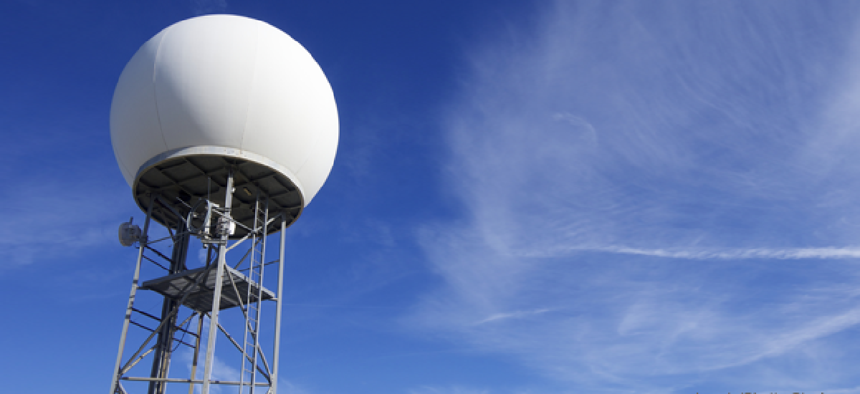NOAA’s future-forward cloud, data strategies


Connecting state and local government leaders
The strategies place a premium on scaling the IT infrastructure and services to drive innovation and advances in science, products and services.
The National Oceanic and Atmospheric Administration released the final versions of its cloud and data strategies, placing a premium on scaling NOAA's IT infrastructure and services to drive innovation and advances in science, products and services.
The cloud strategy, which aligns with the Federal Cloud Strategy, provides a common vision and guide for future cloud initiatives. It advocates rapid adoption of cloud services, promotes broad and secure access to NOAA’s data, manages shared enterprise cloud services and supports a cloud-ready workforce.
The agency’s work with weather prediction, ocean models, climate monitoring and assessments of living marine resources have already pushed advances in data storage, analysis and dissemination.
NOAA’s data resources are growing so vast that they place “a premium on our capacity and wherewithal to scale the IT infrastructure and services to support this growth,” the strategy said. “Modernizing our infrastructure requires leveraging cloud services as a solution to meet future demand.”
The strategy aims to establish a default architecture cloud services, provide a unified migration approach and enable broad sharing of solutions.
“It is clear that the demand for accessible and user-friendly cloud services and modeling is growing,” said Kelvin Droegemeier, director of the White House Office of Science and Technology Policy. “With this update, NOAA will modernize how users are able to access and use data.”
Also addressing the volume and velocity of NOAA’s exponentially increasing data stores from new observing systems and data-acquisition capabilities, the data strategy aims to accelerate the use of data inside and outside the agency, maximize openness and transparency and protect its data’s quality, integrity, security, privacy and confidentiality. It also codifies several existing data management directives across the agency and lines up NOAA’s approach with the Federal Data Strategy.
NOAA said it also plans to develop roadmaps for the cloud and data strategies that define detailed action items, milestones and responsibilities.
The new documents join NOAA’s other strategies on unmanned systems, artificial intelligence, 'omics - and a forthcoming strategy on citizen science. Collectively, they will “accelerate the implementation of the most effective science and technology applications to advance NOAA’s mission, including protecting life and property and growing the American Blue Economy,” agency officials said.
NEXT STORY: Marines connect smart base infrastructure




